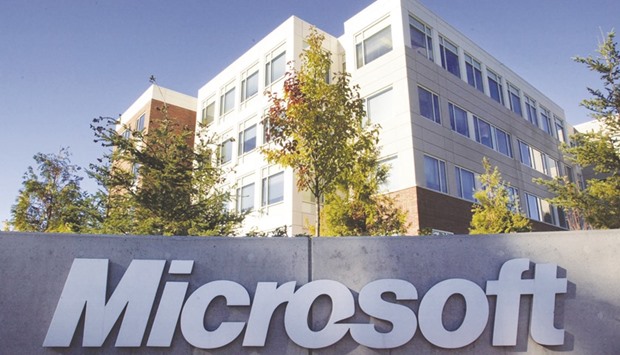For global technology investors, deal-making is set to be one of the biggest investment opportunities of 2017, and they may have the new US president to thank for it.
Tech companies are one of the biggest accumulators of offshore capital. According to some estimates, Apple, Microsoft Corp, Cisco Systems, Oracle Corp, and Alphabet hold a combined $486bn offshore, as of September 30. Donald Trump has suggested cutting taxes on companies’ accumulated offshore earnings from the current 35% to 10%, in order to encourage companies to shift cash back to the US.
If some of this cash-pile is brought back onshore, David Older, head of equities at Carmignac Gestion and a former fund manager at Point72 Asset Management LP, suspects there will be a surge of M&A.
“Companies such as Netflix has been a very strong performer since Trump’s election,” said Older. “These are large deals – but the type of thing you might see happening with this repatriated cash.”
Netflix declined to comment on this story.
The software sector has already experienced a surge of deal making over 2016. Last year the global volume of M&A decreased 8.9% year-on-year, while the volume of tech deals increased 5.9%, according to data compiled by Bloomberg.
Microsoft, Oracle, and Salesforce.com spent a combined $40bn on acquisitions last year – much of that on software firms – while July was the biggest month for software deals since 2007, according to data compiled by Bloomberg.
Tech stocks are also on a tear. The S&P 500 Information Technology Index rose 12% over 2016, and 8.2% this year, as of February 15, compared to 9.5% and 4.4% respectively for the S&P 500.
“We’re very overweight ‘software as a service’ stocks,” said Ben Rogoff, technology director and lead manager of the Polar Capital Technology Trust, a £1.1bn ($1.37bn) fund. “Embedded in that view is that they capture all the incremental software spend, but are also likely to remain M&A targets.”
For Older, companies such as Alphabet and Amazon, which are leading the push into cloud computing, may be behind a number of smaller deals over 2017.
Carmignac currently has a significant position in ServiceNow, a cloud computing company based in Santa Clara. “We think this is a bite-sized acquisition for someone who wants to beef up their cloud offerings,” said Older.
Polar’s Rogoff has maintained a position in Splunk, a data analytics company based in San Francisco. Splunk’s share price dropped 13% over 2016, despite being one of the fastest-growing vendors, according to data from Bloomberg.
“With our largest software bets, most of those we would build in some exception or hope of M&A, and Splunk is definitely one of them,” said Rogoff.
A spokesman for ServiceNow declined to comment. Splunk did not respond to a request for comment.
Rather than a private deal, one of the most anticipated deals of 2017 could be the upcoming initial public offering of a social media company known for its transient messaging service.
Snap, the parent company of Snapchat, filed confidentially for an initial public offering late last year, and is targeting a valuation of about $20bn to $25bn.
Rogoff said it is likely Snap will be in his portfolio this time next year.
“It’s a unique asset with an attractive and rapidly growing audience,” he said. “Although the company has only recently begun monetisation in earnest – making valuation tricky on current metrics – we are familiar and attracted to the model having held Facebook since its IPO.”
During Snap’s last private funding round, the social media company was valued at $18bn. A spokesman for Snap declined to comment.
“If it doesn’t become anything more than a peripheral network, then it is going to be Twitter-like not Facebook-like,” said Mark Hawtin, Investment Director at GAM Holding, which manages $118bn.
Fund managers may not have long to wait for the flurry of tech deals to turn into a deluge.
This year, Cisco has already announced its $3.75bn deal to acquire AppDynamics, while according to a report published Tuesday by law firm Baker McKenzie, 2017 is set to the biggest year for tech M&A since the dot-com boom.
“The caveat is we need a benign Trump on trade and a soft-ish Brexit,” said Baker McKenzie Chairman Paul Rawlinson. “Will we get that? Let’s see.”

One of the buildings on the campus of Microsoft headquarters is seen in Redmond, Washington. Microsoft, Oracle, and Salesforce.com spent a combined $40bn on acquisitions last year.
